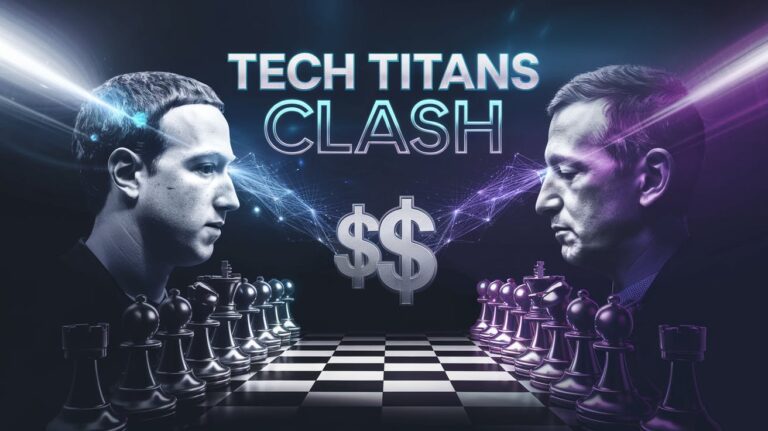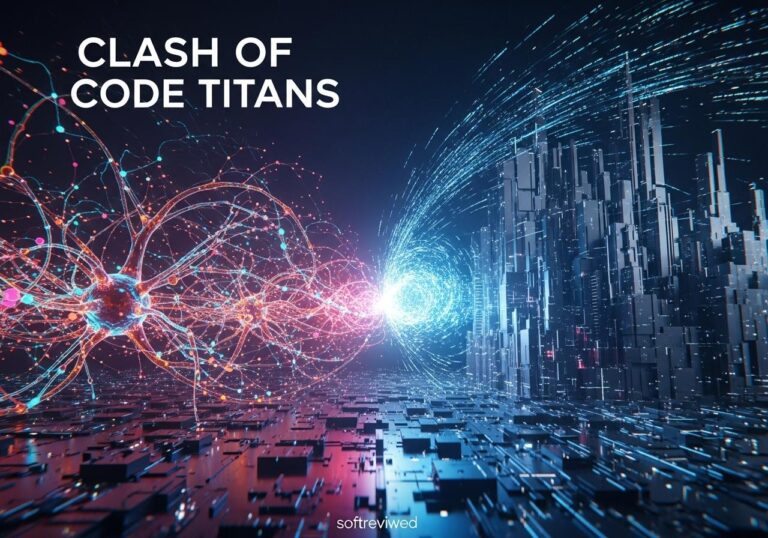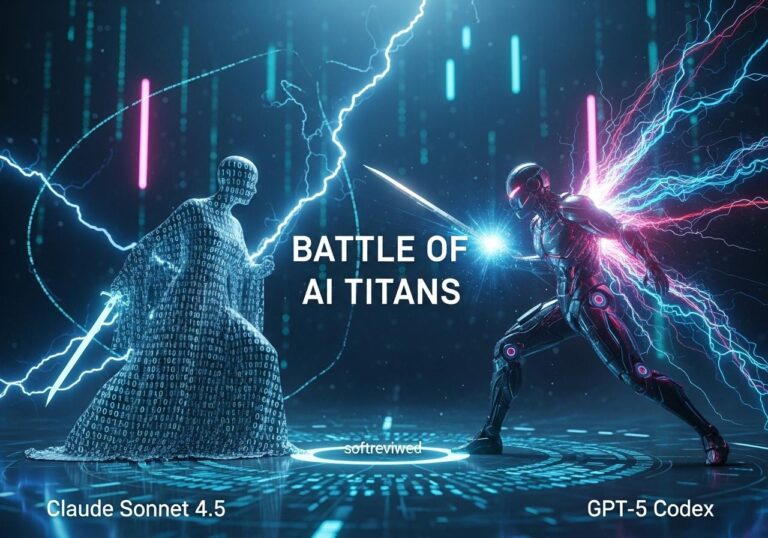Meta & Musk vs OpenAI: The For-Profit Battle
A pivotal moment in AI industry as tech giants challenge OpenAI’s transition from nonprofit to for-profit status.
Meta & Musk Unite
Mark Zuckerberg’s Meta joins forces with Elon Musk to oppose OpenAI’s for-profit transition, raising concerns about nonprofit benefits misuse.
OpenAI’s Valuation
OpenAI reaches $157 billion valuation after $6.6 billion funding round, planning for-profit transition within two years.
Legal Concerns
Meta argues the transition sets a “dangerous precedent” for startups exploiting nonprofit status for initial funding advantages.
Meta’s AI Ambitions
Zuckerberg aims to establish Meta AI as a leading global assistant, directly competing with OpenAI’s ChatGPT.
Legal Battle
Elon Musk files injunction against OpenAI’s transition, claiming betrayal of original nonprofit mission.
Key Stakeholders
Microsoft as largest investor and Apple’s integration make the outcome crucial for AI industry’s future.
The artificial intelligence arena is witnessing a high-stakes clash as Meta, the parent company of Facebook, has actively joined efforts to hinder OpenAI's transition into a for-profit entity. 💥 This development adds a fascinating twist to the ongoing narrative of AI competition and raises significant questions about ethics, business models, and the future direction of the industry. This article will explore Meta's motivations, the potential implications of their actions, and the broader context of this battle for AI dominance, while also exploring the underlying tensions between the major players.
The Unexpected Alliance: Meta and Musk's Joint Challenge
In a surprising turn of events, Meta has aligned itself with Elon Musk, a known critic of OpenAI, to challenge its move to a for-profit structure. 🤝 This unusual alliance highlights the deep-seated concerns within the AI community regarding OpenAI's trajectory. Meta's formal objection, sent in a letter to California Attorney General Rob Bonta, argues that OpenAI is unfairly leveraging its non-profit status to gain an advantage, only to later pursue massive profits. The letter was first reported by The Wall Street Journal, and the move suggests that Meta sees a serious problem with the precedent that OpenAI's actions could set.
Unpacking Meta's Motivations: Beyond Ethical Concerns
While Meta frames its opposition as a matter of ethical governance, there are likely strategic motivations at play. 🧐
📌 Meta is heavily investing in its own AI technologies, including large language models like Llama 3, which directly competes with OpenAI's GPT series.
📌 Allowing OpenAI to operate as a for-profit entity could strengthen its position in the AI sector.
📌 Meta's CEO, Mark Zuckerberg, is also reportedly pushing for a more open AI world, a direct contrast to OpenAI's proprietary approach to AI development.
Meta, by challenging the move, is attempting to level the playing field, or at least slow down OpenAI's progress.
The Legal Battle: What Meta Hopes to Achieve

Meta's letter to the California Attorney General specifically requests intervention to block OpenAI's transition, citing potentially “seismic implications for Silicon Valley”. ⚖️
- They argue that if OpenAI’s move is allowed, other companies might operate initially as non-profits, receive tax benefits, and then switch to a for-profit model.
- Meta also claims that the profits made by OpenAI could be “enormous” and unethical if derived from its original charitable status and resources.
- The legal strategy echoes concerns raised in Elon Musk’s earlier injunction against OpenAI and highlights the potential for regulatory involvement.
This could result in increased scrutiny of both large and small AI companies, affecting the way the entire industry operates.
The Competition Heats Up: Meta vs. OpenAI in the AI Race
The clash between Meta and OpenAI also underscores the intense competition within the AI space. 🚀
📌 While OpenAI has been seen as the leader in generative AI, Meta is rapidly developing and releasing competing technologies.
📌 Meta's open-source approach with Llama 3 is a strategic move to foster collaborative development, directly contrasting with OpenAI's more commercially focused approach.
This competition extends beyond simply technological prowess; it's also about which business model will prevail in the AI ecosystem. Meta has stated its desire to see the field dominated by open-source models, as they view this as more beneficial for all of society.
The Ethical Tightrope: Non-profit Intentions and For-profit Realities
OpenAI's initial non-profit status was a selling point, aiming to develop AI for the good of humanity, but this shift to a for-profit model has sparked debate about ethics. 🤔
- Critics, including both Musk and Meta, argue that OpenAI has betrayed its original mission, prioritizing profit over public good.
- This situation raises crucial questions about the accountability of AI development and the ethical considerations for companies that begin as non-profits but then make the switch to for-profit entities.
- Meta and Musk have expressed concerns that this precedent could set a new, more lax standard in Silicon Valley.
OpenAI's Defense: A Need for Scalability and Funding
OpenAI defends its for-profit move by stating the need for significant investments to advance AI research. 💰
- They argue that this is a necessity to scale up their operations and remain competitive in the AI sector.
- They have also indicated that a portion of their profits will remain in the original non-profit arm of the company.
- This defense acknowledges the massive cost associated with AI research.
They have also argued that the current complex structure of a non-profit entity with a "capped-profit" subsidiary is not sustainable or efficient.
Future Implications: A Turning Point for AI Business
The outcome of this conflict between Meta and OpenAI could reshape the entire AI industry. 🔮
- If Meta succeeds in blocking OpenAI's move, it could signal a shift toward stricter regulatory oversight and increased scrutiny of non-profit transitions.
- Conversely, if OpenAI succeeds, it could encourage other AI startups to follow a similar path.
This will significantly impact the business models in the AI industry, as well as change the relationships between non-profit institutions and the for-profit world.
How Do Meta’s Controversial Decisions Impact Its Competitive Edge Against OpenAI?
Meta’s controversial move on factchecking policies has raised eyebrows across the tech industry, positioning the company as a polarizing player. As users seek transparency, OpenAI’s commitment to accurate information may draw users away from Meta, potentially eroding its competitive edge in the evolving landscape of AI technology.
A Broader Battle for AI Ideals
Ultimately, the Meta-OpenAI conflict is more than just a dispute over business models or profits. 🎯
- It is a clash of ideologies about the future of AI.
- Meta's open-source approach contrasts sharply with OpenAI's proprietary approach and pursuit of market dominance.
- The ultimate resolution will likely shape the direction of innovation and access to AI technologies for years to come.
AI Industry Investment Comparison 2024
Comparison of major investments and valuations in the AI industry, highlighting the financial stakes of key players.







